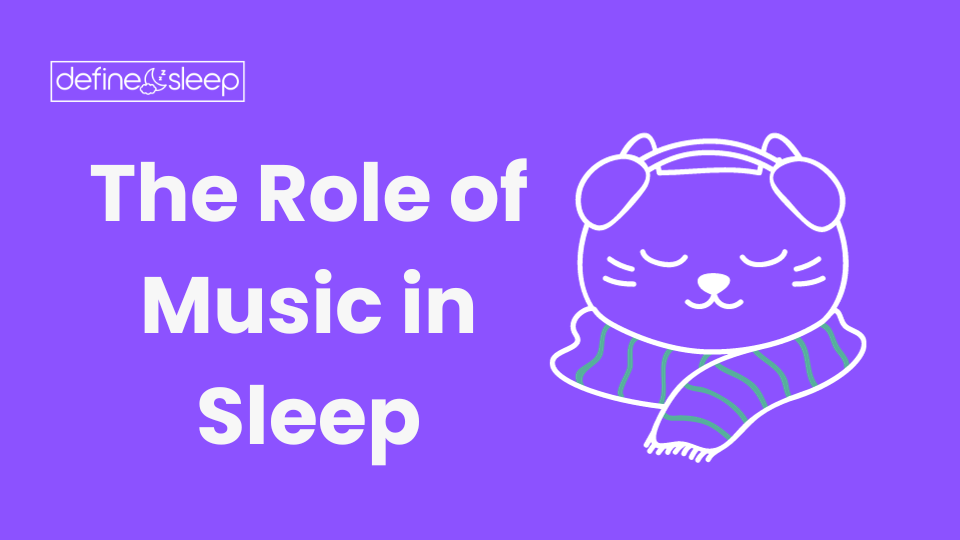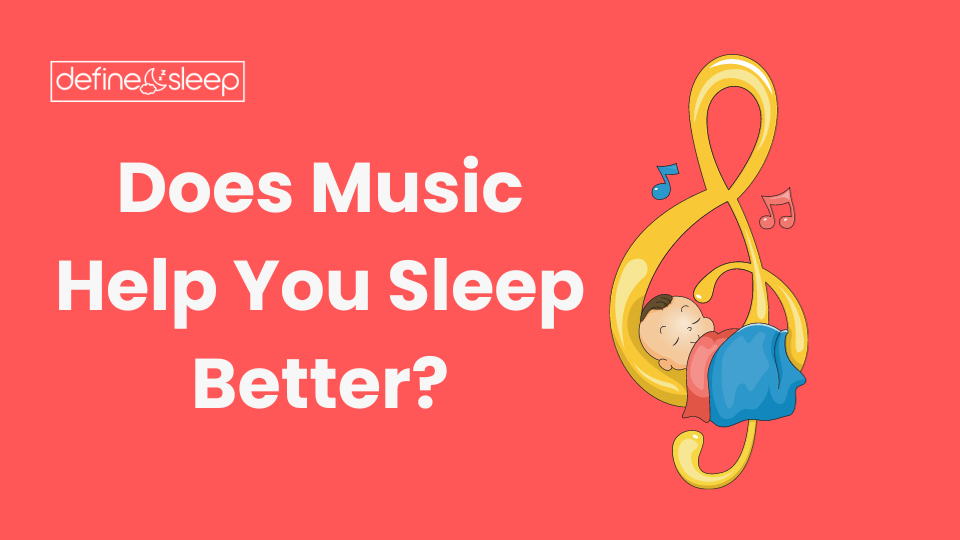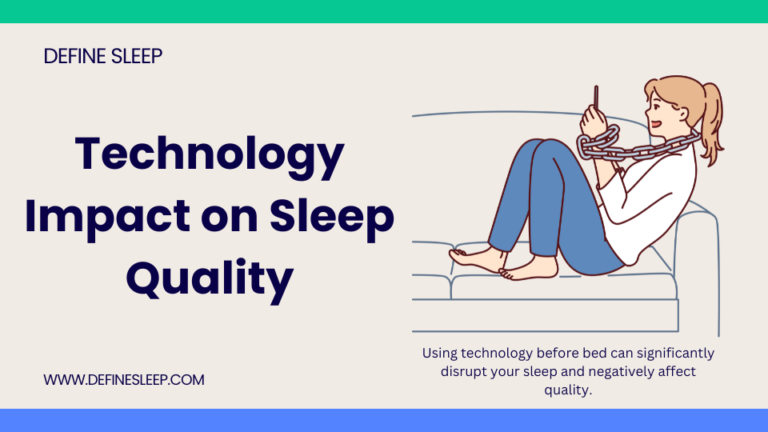In a world that constantly hums with the melody of life, have you ever found yourself falling asleep while listening to your favorite tunes? If so, you are not alone. Here’s an interesting fact: You fall asleep listening to music. But we’re here to help you understand. Does music help you sleep better?
We will also find out in this article. Which music benefits us, and which doesn’t? Falling asleep while listening to music is an interesting phenomenon. In this article, we will delve deeper into this interesting issue.
Table of Contents

The Role of Music in Sleep:
The music is utilized as a form of therapy. The role of music in sleep is a topic that has been extensively studied. Many people use music to relax and fall asleep more easily.
Studies have shown that listening to relaxing music can reduce stress and anxiety and improve sleep quality. However, it is important to note that not everyone finds music helpful for sleep, and some may even find it distracting.
Ultimately, whether or not music is an effective tool for improving sleep is subjective and varies from person to person. Many people have varying preferences when it comes to music volume.
While some enjoy listening to loud music, others prefer soft music. However, most people prefer a quiet environment when it comes to sleeping. This is because a calm room allows for better sleep and relaxation.
Characteristics of Sleep-Inducing Music:
Certain characteristics make specific types of music better suited for promoting relaxation and sleepiness:
1. Slow Tempo:
Music with a slow tempo, measured in beats per minute (BPM), tends to calm listeners. Slower tempos can lower heart rates and relax the mind.
2. Soft Dynamics:
Music with gentle dynamics, meaning variations in loudness, creates a soothing ambiance. Sudden, loud sounds can disrupt relaxation.
3. Simple Melodies:
Simple, repetitive melodies can be meditative, aiding mental unwinding before sleep.
4. Minimal Dissonance:
Music with minimal dissonance (clashing notes) avoids stirring strong emotions that hinder relaxation.
5. Natural Sounds:
Incorporating nature sounds like rain, ocean waves, or bird songs enhances the calming effect, mimicking ancestral sleep environments.
Genres and Examples of Sleep-Inducing Music:
Several genres and examples of music are known to promote relaxation and sleepiness.
1. Classical Music:
Composers like Mozart, Debussy, and Chopin offer gentle, soothing compositions. Pieces like Debussy’s “Clair de Lune” or Satie’s “Gymnopédies” are popular.
2. Ambient and New Age Music:
These genres create immersive soundscapes. Artists like Brian Eno and Enya produce music conducive to relaxation and sleep.
3. Nature Sounds with Music:
Blending soft instrumental music with nature sounds like rainfall enhances relaxation, replicating natural settings.
4. Instrumental Music:
Tracks highlighting acoustic instruments like piano, guitar, or flute provide gentle backgrounds for relaxation.
5. Lullabies:
Known for soothing babies, lullabies also calm adults. Their repetitive patterns induce calmness.
Individual Differences:
Personal preferences play a significant role in how music affects individuals. While some find classical music soothing, others prefer ambient electronic music or folk tunes. Experimentation helps find what resonates with you for relaxation.
Incorporating music into a relaxation routine can improve sleep quality:
1. Consistency:
Listen to calming music consistently before sleep. Your brain associates the music with winding down.
2. Bedtime Ritual:
Combine music with deep breathing or meditation techniques to enhance relaxation.
3. Volume Control:
Maintain a comfortable volume; loud music can disrupt relaxation.
4. Screen Limitation:
Use devices with screen-off functions or dedicated playlists to avoid bright screens before sleeping.
5. Mindfulness:
Focus on the music’s melodies, rhythms, and sensations. This mindfulness quiets the mind.
Considerations and downsides:
1. Lyrics:
Lyrics, especially emotions, can engage your brain and hinder relaxation.
2. Overstimulation:
Intense or complex music might stimulate rather than relax.
3. Personal associations:
Avoid music that evokes solid emotions or memories that keep you awake.
4. Sleep Cycles:
Use timers to stop music after a period; continuous music may disrupt sleep cycles.

Conclusion:
To sum up, music can be a potent aid for inducing relaxation and promoting sleepiness. While the type of music varies per person, slow tempo, soft dynamics, and gentle melodies generally work. Incorporating calming music into a consistent bedtime routine, along with relaxation techniques, creates a sleep-conducive environment. Experimenting to find the right music might take effort, but sleep quality and overall well-being benefits are worth it.

1. Can any music help us relax and sleep, or are some kinds better?
Some music is better at making us feel calm and sleepy. Music like classical, ambient, and sounds from nature can help because they are soothing.
2. When should we listen to calming music before bedtime?
It’s good to start listening to calming music about 30 minutes before you want to sleep. It gives your body and mind time to get ready for rest.
3. Can we listen to songs with words before bed, or is different music better?
Music with soft words or without words is better for relaxing and sleeping. Words in pieces that make us feel too excited can make it harder to relax.
4. Is it better to use headphones when we listen to music to sleep?
Using headphones can make the music feel like it’s all around you and help you relax. But make sure the sound is not too loud so it doesn’t wake you up.
5. How does music help people with trouble sleeping or sleep problems?
Music can be like a helper for people who can’t sleep well. Calm music can make you feel less worried and stressed. But if you have sleep troubles, talk to a doctor for advice.
6. What should we do to make music part of our bedtime routine?
To make music part of your bedtime routine, listen to calming music often. You can also do things like slow breathing or thinking peaceful thoughts while you hear.
7. Can music help with things like meditation or feeling less stressed?
Yes! Music can make meditation and relaxation easier. It’s like having a gentle friend to help you feel peaceful.
8. Are there any not-so-good things about using music for sleep and calmness?
Sometimes, music with loud or strong sounds might make it hard to relax. Also, music with words that make us feel too much can stop us from feeling sleepy.
9. Can we make our list of songs for sleep and calmness?
You can list songs you like that are calm and slow. Try different themes and see which ones make you feel most relaxed.
10. Can music always help us sleep better if we listen to it for a long time?
Listening to music can be good for sleep, especially if you make it a habit. But if rest is still hard, asking a doctor for help is essential. They can tell you more about how to sleep better.
Help From Chatgpt 4




